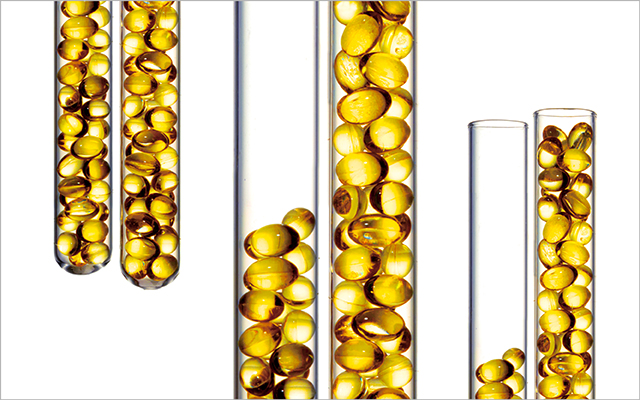Two new studies indicate that low levels of vitamin D are linked to cancer, heart disease, and other illnesses — but only one offers enthusiastic support for supplementation in pill form.
Both studies, published this month in the British Medical Journal (BMJ), were meta-analyses of earlier research that looked at the relationship between various illnesses and vitamin D levels, as well as whether taking a daily D supplement had a positive impact on health.
The studies, which looked at data on more than one million people, confirmed previously reported evidence of the risks associated with vitamin D deficiency:
Inadequate vitamin D levels can increase your risk of dozens of serious health problems, including cancer, heart disease, osteoporosis, asthma, Alzheimer’s disease, and even the common cold and influenza. And apparently, nearly all of us are at risk of vitamin D deficiency …
“Ninety-five percent of Americans are deficient in vitamin D — that’s how big the problem is,” says John J. Cannell, MD, who heads the nonprofit Vitamin D Council. “It’s very difficult to overstate the seriousness of the situation.” — “The Vitamin D Debate” (Experience Life, December 2011)
One of the studies found that adults with lower levels of vitamin D in their blood had a greater mortality risk; they also had a 35 percent increased risk of death from heart disease, and 14 percent increased risk of death from cancer.
This study also looked at supplementation. The researchers found that middle-aged and older adults who took vitamin D3 had an 11 percent reduction in overall mortality compared to those who didn’t take the supplement. D3 is the type of vitamin D produced by the body in response to sun exposure and is also found in a few foods, such as wild salmon and shiitake mushrooms. (There was no apparent benefit to supplementing with another form of the vitamin, D2, the researchers found.)
The other study found that evidence suggested that high levels of vitamin D could protect against such illnesses as diabetes and hypertension — but they did not conclude that supplementation had a significant beneficial effect. (Research published late last year also showed that although low vitamin D levels are associated with higher risk of a wide variety of diseases, supplementation had little impact on disease occurrence.)
The researchers noted that exposure to sunshine (for 30 minutes, twice a week, sans sunscreen) and incorporating vitamin D-containing foods could help boost flagging D levels.
With all this information, you’re probably wondering: Should I take a supplement? And if so, how much should I take?
When we talked to our sources in the aforementioned “The Vitamin D Debate,” they were all in favor of supplementation — especially since most Americans are deficient. Here are some guidelines from that piece:
— Ask your doctor for a “25-hydroxy vitamin D” blood test. Levels below 30 ng/ml indicate a deficiency. The optimal level is at least 40 ng/ml. Surfers, lifeguards and people who spend a lot of time outdoors typically have levels of 70 to 90 ng/ml.
— If you don’t currently have a significant deficiency, and if during the summer you spend a lot of time in the sun, with at least your arms and legs exposed, and you are not always slathered with sunscreen, you probably don’t need to take vitamin D supplements.
— If it’s fall, winter or early spring, if you don’t get a lot of sun exposure, or if you know you are D-deficient, you should definitely take a vitamin D3, also known as cholecalciferol.
— If you have not taken a vitamin D blood test and you’re looking for general guidelines, it is suggested that children take 1,000 to 2,000 IU and adults take 2,000 to 3,000 IU daily.
— Follow up with blood tests to monitor your levels.
Vitamin D: Good for What Ails You?
By Jack Challem
This sidebar originally appeared in “The Vitamin D Debate.” (Experience Life, December 2011)
Although small amounts of vitamin D (e.g., 600 IU daily) might be enough to reduce your risk of rickets or broken bones, larger amounts are more likely to support overall optimal health. Here are some conditions that larger doses of vitamin D appear to help.
• Allergies. Vitamin D deficiency is associated with a greater risk of allergies, such as to pollens.
• Back pain. Many studies have shown that in patients with chronic lower-back pain, vitamin D supplements led to either a partial or complete elimination of pain.
• Fibromyalgia. Low vitamin D levels are typical in this disease, and boosting vitamin D reduces symptoms.
• Heart disease. Low vitamin D levels are associated with up to a 50 percent higher risk of heart attack.
• Mental health. Low wintertime vitamin D levels may be a factor in seasonal affective disorder (that is, seasonal depression), as well as in schizophrenia.
• Multiple sclerosis. The risk of multiple sclerosis increases progressively in populations living at latitudes farther from the equator. A growing body of research suggests that adequate vitamin D might slow its progression, at least in the early stages of MS.
• Skin cancer. Some research suggests that for certain populations, vitamin D, in combination with sun exposure or calcium supplementation, might offer some protection against skin cancer.
• Type 2 diabetes. Considerable research indicates that vitamin D, often in combination with calcium, helps regulate blood sugar and may reduce the risk of type 2 diabetes.
• Vaginal infections. Bacterial vaginosis affects nearly one of every three women. Maintaining normal vitamin D levels might reduce the risk of this type of infection.


This Post Has 0 Comments